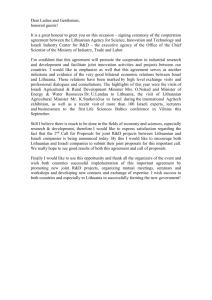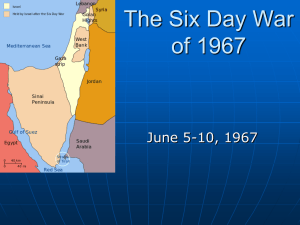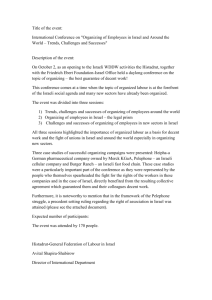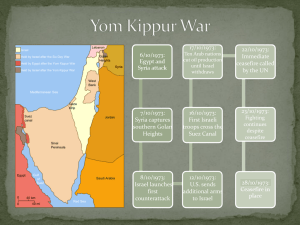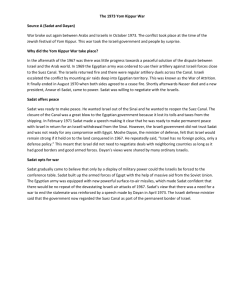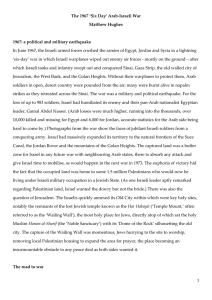What were the origins of the Six Day War
advertisement
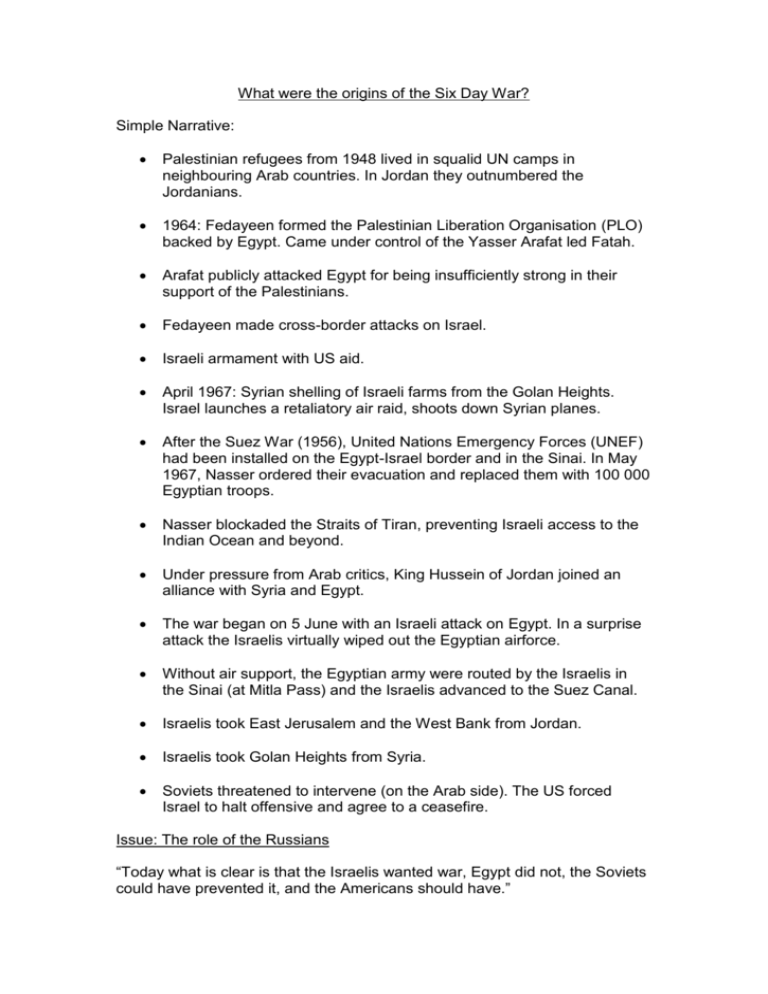
What were the origins of the Six Day War? Simple Narrative: Palestinian refugees from 1948 lived in squalid UN camps in neighbouring Arab countries. In Jordan they outnumbered the Jordanians. 1964: Fedayeen formed the Palestinian Liberation Organisation (PLO) backed by Egypt. Came under control of the Yasser Arafat led Fatah. Arafat publicly attacked Egypt for being insufficiently strong in their support of the Palestinians. Fedayeen made cross-border attacks on Israel. Israeli armament with US aid. April 1967: Syrian shelling of Israeli farms from the Golan Heights. Israel launches a retaliatory air raid, shoots down Syrian planes. After the Suez War (1956), United Nations Emergency Forces (UNEF) had been installed on the Egypt-Israel border and in the Sinai. In May 1967, Nasser ordered their evacuation and replaced them with 100 000 Egyptian troops. Nasser blockaded the Straits of Tiran, preventing Israeli access to the Indian Ocean and beyond. Under pressure from Arab critics, King Hussein of Jordan joined an alliance with Syria and Egypt. The war began on 5 June with an Israeli attack on Egypt. In a surprise attack the Israelis virtually wiped out the Egyptian airforce. Without air support, the Egyptian army were routed by the Israelis in the Sinai (at Mitla Pass) and the Israelis advanced to the Suez Canal. Israelis took East Jerusalem and the West Bank from Jordan. Israelis took Golan Heights from Syria. Soviets threatened to intervene (on the Arab side). The US forced Israel to halt offensive and agree to a ceasefire. Issue: The role of the Russians “Today what is clear is that the Israelis wanted war, Egypt did not, the Soviets could have prevented it, and the Americans should have.” A Changing Image: American Perceptions of the Arab Israeli Dispute, by Richard H. Curtiss Egypt-Soviet relationship developed after Nasser had tried and failed to get a peace treaty with Israel via successive US administrations. (Richard H. Curtiss) Some Russian leaders wished to exploit US Vietnam quagmire and enhance their power in the Middle East. USSR informed Syria that Israel was amassing troops on its border in preparation for an attack. This report was false. It is not clear whether the Russians just made it up or whether they were reporting fake signals manufactured by the Israelis. Syrians requested Egyptian assistance. Russia confirmed the intelligence they’d advised the Egyptians of with regard to the Israeli build-up on the Syrian border. Only then did Nasser expel the UN Emergency Force. Issue: Israeli expansionism “Egyptian President Gamal Abdel Nasser, who several times expressed to U.S. emissaries his willingness to enter secret negotiations for a peace treaty with Israel. It was Israel's charismatic Prime Minister David Ben-Gurion who was not ready.” A Changing Image: American Perceptions of the Arab Israeli Dispute, by Richard H. Curtiss “For some time the Syrians had been supporting Palestinian guerrilla raids across Israel's borders. True to their policy of retaliating against moderate Arab regimes, however, Israeli reprisal raids were carried out against Palestinian West Bank villages under Jordanian rule. In November 1966, a PLO mine planted by Al Fatah guerrillas on an Israeli road near the Jordanian frontier killed three and wounded six Israeli soldiers. An Israeli armored column, supported by Mirage aircraft, crossed the frontier and destroyed the West Bank village of As-Sammu. Eighteen Palestinians and Jordanian soldiers were killed and 134 wounded.” A Changing Image: American Perceptions of the Arab Israeli Dispute, by Richard H. Curtiss Issue: The Red Sea Regatta Lyndon Johnson, in his book The Vantage Point: Perspectives of the Presidency, 1963-1969, published in 1971, describes a May 26 meeting in the White House with Israeli Foreign Minister Abba Eban: "Our conversation was direct and frank. Eban said that according to Israeli intelligence, the United Arab Republic (Egypt) was preparing an all-out attack. I asked Secretary [of Defense Robert] McNamara, who was present, to give Mr. Eban a summary of our findings. Three separate intelligence groups had looked into the matter, McNamara said, and it was our best judgment that a UAR attack was not imminent. 'All of our intelligence people are unanimous,' I added, 'that if the UAR attacks, you will whip hell out of them.' "Eban asked what the United States was willing to do to keep the Gulf of Aqaba open. I reminded him that I had defined our position on May 23. We were hard at work on what to do to assure free access, and when to do it. 'You can assure the Israeli Cabinet,' I said, 'we will pursue vigorously any and all possible measures to keep the Strait open. . .' "Abba Eban is an intelligent and sensitive man. I wanted him to understand the U.S. position fully and clearly, and to communicate what I said to his government. 'The central point, Mr. Minister,' I told him, 'is that your nation will not be the one to bear the responsibility for any outbreak of war.' Then I said, very slowly and very positively: 'Israel will not be alone unless it decides to go alone.'" Johnson believed he had lined up ships from the UK, the Netherlands and Australia to join U.S. ships in lifting Egypt's threatened blockade of the Straits of Tiran. Then it was decided that UAR Vice President Zakaria Muhieddin would first visit Washington on June 7. 1967, Israel, the War, and the Year That Transformed the Middle East By Tom Segev for Segev, the primary cause of the war: "They clung to the Israeli culture of youth; they were like adolescent boys or bulls in rut. They believed in force and they wanted war. War was their destiny." Tom Segev’s 1967 reviewed by Michael Oren in the Washington Post. “The book repeatedly asserts that war might have been averted if Israel had accepted an American plan to break the Egyptian blockade by sending an international convoy through the Straits of Tiran. But the American plan, codenamed Regatta, was rejected by Congress, as well as by 24 of the 26 nations invited to contribute to the convoy.”


